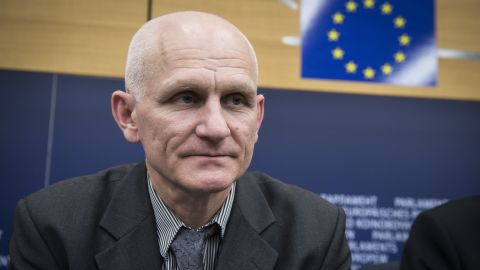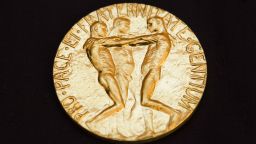Human rights groups from Russia and Ukraine – Memorial and the Center for Civil Liberties – have won the Nobel Peace Prize for 2022, along with the jailed Belarusian advocate Ales Bialiatski.
The new laureates were honored for “an outstanding effort to document war crimes, human right abuses and the abuse of power” in their respective countries. “They have for many years promoted the right to criticise power and protect the fundamental rights of citizens,” the Norwegian Nobel Committee said.
Their win comes seven months after Russia waged a full-scale war on Ukraine, with the assistance of Belarus. That ongoing conflict loomed heavily over this year’s award, and it had been speculated that the committee would seek to pay tribute to activists in the affected nations.
The Ukrainian group, Center for Civil Liberties, has “engaged in efforts to identify and document Russian war crimes against the Ukrainian civilian population” since the invasion was launched in February, the committee said.
“In collaboration with international partners, the center is playing a pioneering role with a view to holding the guilty parties accountable for their crimes.”
Memorial was founded in 1987 and, after the fall of the Soviet Union, became one of Russia’s most prominent human rights watchdogs. It has worked to expose the abuses and atrocities of the Stalinist era.
The group was shut down by Russian courts in the past year, in a major blow to the country’s hollowed-out civil rights landscape.
Bialiatski, meanwhile, has documented human rights abuses in Belarus since the 1980s. He founded the organization Viasna, or Spring, in 1996 after a referendum that consolidated the authoritarian powers of president and close Russia ally Alexander Lukashenko.
The activist was arrested in 2020 amid widespread protests against Lukashenko’s regime. “He is still detained without trial. Despite tremendous personal hardship, Mr Bialiatski has not yielded an inch in his fight for human rights and democracy in Belarus,” the committee said.

“This year we were in a situation with a war in Europe, which was most unusual, but also facing a war that has a global effect on people all over the world,” Berit Reiss-Andersen, the chair of the committee, told reporters.
Reiss-Andersen said the prize is not intended to send a message to Russian President Vladimir Putin or any other individual But she added that he represents “an authoritarian government that is suppressing human rights activists.”
The three winners will share the prize money of 10,000,000 Swedish krona ($900,000). The Nobel Prizes will be officially awarded to the laureates at a ceremony on December 10, the anniversary of Alfred Nobel’s death.



Comments